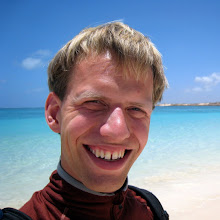DEN SOCIALTERAPEUTISKE METODE ER
• en anerkendt tilgang inden for både de postmoderne og de Vygotsky-inspirerede bevægelser inden for psykologi, psykoterapi, uddannelse og organisationsudvikling.
• en praktisk, filosofisk og aktivistisk tilgang, der relaterer til mennesker som skabere af deres kultur og improviserende performere af deres liv.
• det metodiske grundlag for en række specifikke tiltag, der anvender den socialterapeutiske forståelse af læring og udvikling i klinikker, klasseværelser, hospitaler, fritidsaktiviteter, arbejdspladser og samfund verden over.
KURSETS PROGRAM vil veksle mellem øvelser, fælles refleksioner og korte teoretiske oplæg og ende med udlevering af en ’værktøjskasse’ i form af et minikompendium med øvelser og teoretiske pointer. Øvelserne er inspireret af improvisationsteater og designet til at skabe fællesskab og tillid i gruppen. De fælles refleksioner vil fokusere på, hvordan deltagerne kan anvende læringen og øvelserne i deres eget arbejde. Undervejs vil vi udforske følgende emner: performance og leg; menneskelig udvikling og gruppekreativitet; styrkelse af socialitet og håndtering af fremmedgørelse; udviklende filosofi og læring; sprogets betydning for udvikling; samt Marx’, Vygotskys og Wittgensteins bidrag til den socialterapeutiske tilgang.
PÅ KURSET VIL DU BL.A. LÆRE, HVORDAN MAN
• Ser og forholder sig til gruppen frem for individet som genstand for indsats og udvikling.
• Bruger teatralsk improvisation som en metode til facilitering og udvikling af gruppen.
• Udnytter en gruppes diversitet til at maksimere dens emotionelle, sociale og kognitive kreativitet.
• Værdsætter og anvender konflikt til at udvikle gruppen.
• Støtter alle medlemmer til at tage ansvar for gruppens udvikling og effektivitet.
MÅLGRUPPEN: Kurset er især relevant for praktikere inden for psykologi, undervisning, teater, psykiatri, socialt arbejde, antropologi, pædagogik, ungdomsskole, sociologi, fritidsaktiviteter, boligsocialt arbejde, og frivilligt arbejde, men tilmelding er åben for alle interesserede. Du behøver ikke have viden eller erfaringer med gruppearbejde eller med metoden for at deltage, men forventes at deltage aktivt i øvelser og refleksioner. Kurset foregår på engelsk.
PRAKTISKE OPLYSNINGER
TID: Onsdag d. 31/1 kl. 9.00-16.00.
PRIS: 1200kr /studerende 600kr. (For at få studierabat skal du fremvise dit studiekort samt gyldig indskrivningsbekræftelse ved kursets begyndelse).
ANTAL DELTAGERE: Max. 30.
KONTAKTPERSON: Esben Wilstrup, tlf. 29928370, esbenwi@gmail.com.
TILMELDING: Send en mail til esben.wilstrup@buf.kk.dk med dit navn, telefonnummer og profession. Når du er tilmeldt kurset vil du modtage en mail fra arrangørerne med praktisk information vedrørende kurset.
OM UNDERVISERNE:
LOIS HOLZMAN, PhD, is the director and co-founder of the East Side Institute. As a leading proponent of a cultural approach to human learning and development, she has brought the writings of Lev Vygotsky to bear on the practices and methods of psychotherapy, as well as contributing to advancing their relevance to education, youth development and organizational studies. She is well known for her pioneering work in exploring the human capacities to play and perform and their fundamentality in learning how to learn. Holzman has helped shape and expand the international performance movement as a force for radical social change, through the bi-annual Performing the World conference, the Institute's International Class, and other collaborative community-building projects among psychologists, social workers, educators and cultural workers from around the world. Holzman is particularly respected as an activist scholar who builds bridges between university-based and community-based practices, bringing the traditions and innovations of each to the other. She has written/edited extensively on human development, learning and play; the institutions of psychology and education; and social therapy and its applications. Her most recent book is Vygotsky at Work and Play. Holzman earned her Ph.D. in developmental psychology from Columbia University and was a postgraduate research fellow at the Laboratory of Comparative Human Cognition.
DAN FRIEDMAN, PhD, has been active in political and experimental theatre as actor, director, playwright and scholar for four decades. He is a founder of the Castillo Theatre and serves as the theatre's artistic director. Most recently he has added working with youth to his cultural projects, as founder and artistic director of Youth Onstage! and the director of Becoming Producers. Friedman has worked closely with Fred Newman for over twenty years, and is editor of Still On The Corner and Other Postmodern Political Plays by Fred Newman. He received his doctorate in theatre history from the University of Wisconsin.
THE EAST SIDE INSTITUTE is an international training, educational and research center for new approaches to human development, learning, therapy and community building. The Institute's work is devoted to changing psychology from a diagnostic, evaluative (and often stigmatizing) practice into a positive and creative force for the emotional, social and cultural development of all people and their communities. During the last 30 years the Institute has developed a unique group-oriented performatory approach called social therapy that relates to people of all ages as social performers and creators of their lives - of what they, their communities and the world are becoming. Drawing from the discoveries of its co-founders-philosopher-ps
